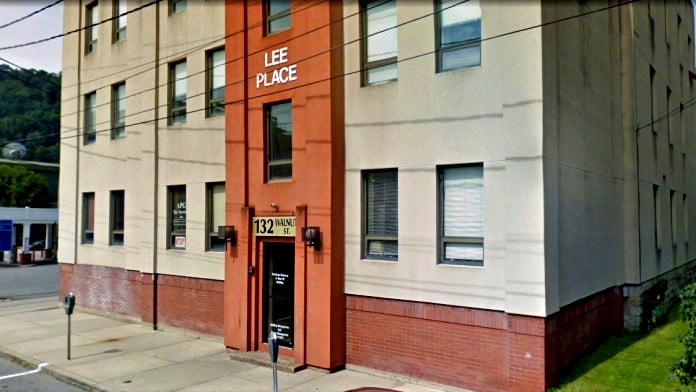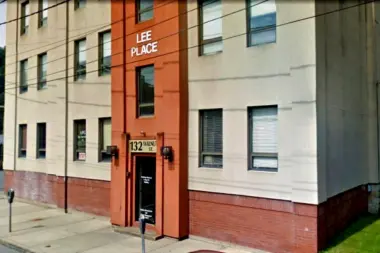Good nursing and doctor staff, I have a good experience when I go unless it gets really busy and it has sometimes been a longer wait time. Best to arrive at your scheduled appointment times cause they run every 15 min for appointment times and you shouldn't have a long wait ...
About Crossroads
Crossroads (formerly known as Accessible Recovery Services) in Johnstown, Pennsylvania, is an office based opioid treatment center. They offer medication assisted treatment (MAT) for detox and counseling for opioid use disorder (OUD) and co-occurring mental health issues. You can use private health insurance, Medicaid and Medicare to pay for your treatment.
Addiction Treatment for Specialty Populations in Johnston
The staff at the treatment center recognizes that everyone’s journey is unique, so they’ve designed programs to offer targeted support for specific groups. They want to ensure that everyone receives the resources and care they need to thrive, and they’re dedicated to improving health equity.
There are specialized programs for veterans, pregnant women and the unhoused. They offer gender specific programs to address the unique needs of both men and women. Additionally, they offer translation services for clients who don’t speak English.
They offer affirming and inclusive addiction treatment services to LGBTQ+ individuals. The staff is trained and experienced in addressing the specific challenges faced by clients in this community. They provide a safe and supportive environment so clients feel comfortable receiving treatment.
Caring and Comfortable Addiction Treatment
The facility is close to Greenhouse Park, which is between Johnstown and Tire Hill and sits near the Stonycreek River. There’s a walking track, pavilions and other amenities contained in the 11 acre park. This is a beautiful place to spend time in nature on your healing journey.
The treatment environment is private and secure, and clients are enthusiastic about the facility. One client mentioned that the doctors and staff are professional, helpful and truly care about your problems. They say this facility has the best doctors, staff and counselors who help you in all areas of your life.
Latest Reviews
Rehab Score
Gallery


Other Forms of Payment
Private insurance refers to any kind of healthcare coverage that isn't from the state or federal government. This includes individual and family plans offered by an employer or purchased from the Insurance Marketplace. Every plan will have different requirements and out of pocket costs so be sure to get the full details before you start treatment.
Self-pay involves paying for treatment out of your own pocket. You can use savings or credit, get a personal loan, or receive help from family and friends to fund your treatment. If you don't have insurance or your insurance plan doesn't cover a specific program, self-pay can help ensure you still get the care you need.
Medicaid is a state based program that helps lower-income individuals and families pay for healthcare. Medicaid covers addiction treatment so those enrolled can use their coverage to pay for rehab. When a program accepts Medicaid the client often pays very little or nothing out of their own pocket.
Medicare is a federal program that provides health insurance for those 65 and older. It also serves people under 65 with chronic and disabling health challenges. To use Medicare for addiction treatment you need to find a program that accepts Medicare and is in network with your plan. Out of pocket costs and preauthorization requirements vary, so always check with your provider.
Addiction Treatments
Levels of Care
Outpatient Programs (OP) are for those seeking mental rehab or drug rehab, but who also stay at home every night. The main difference between outpatient treatment (OP) and intensive outpatient treatment (IOP) lies in the amount of hours the patient spends at the facility. Most of the time an outpatient program is designed for someone who has completed an inpatient stay and is looking to continue their growth in recovery. Outpatient is not meant to be the starting point, it is commonly referred to as aftercare.
Drug and alcohol addiction often takes a heavy toll on one’s body. Over time, a physical dependence can develop, meaning the body physiologically needs the substance to function. Detox is the process of removing drugs and/or alcohol from the body, a process that can be lethal if mismanaged. Medical detox is done by licensed medical professionals who monitor vital signs and keep you safe, healthy, and as comfortable as possible as you go through detox and withdrawal.
Intensive Outpatient Programs (IOP) are for those who want or need a very structured treatment program but who also wish to live at home and continue with certain responsibilities (such as work or school). IOP substance abuse treatment programs vary in duration and intensity, and certain outpatient rehab centers will offer individualized treatment programs.
Completing a drug or alcohol rehab program shouldn't spell the end of substance abuse treatment. Aftercare involves making a sustainable plan for recovery, including ongoing support. This can include sober living arrangements like halfway houses, career counseling, and setting a patient up with community programs like Alcoholics Anonymous (AA) or Narcotics Anonymous (NA).
Treatments
Opioid rehabs specialize in supporting those recovering from opioid addiction. They treat those suffering from addiction to illegal opioids like heroin, as well as prescription drugs like oxycodone. These centers typically combine both physical as well as mental and emotional support to help stop addiction. Physical support often includes medical detox and subsequent medical support (including medication), and mental support includes in-depth therapy to address the underlying causes of addiction.
Substance rehabs focus on helping individuals recover from substance abuse, including alcohol and drug addiction (both illegal and prescription drugs). They often include the opportunity to engage in both individual as well as group therapy.
Programs
Adult rehab programs include therapies tailored to each client's specific needs, goals, and recovery progress. They are tailored to the specific challenges adult clients may face, including family and work pressures and commitments. From inpatient and residential treatment to various levels of outpatient services, there are many options available. Some facilities also help adults work through co-occurring conditions, like anxiety, that can accompany addiction.
Young adulthood can be an exciting, yet difficult, time of transition. Individuals in their late teens to mid-20s face unique stressors related to school, jobs, families, and social circles, which can lead to a rise in substance use. Rehab centers with dedicated young adult programs will include activities and amenities that cater to this age group, with an emphasis on specialized counseling, peer socialization, and ongoing aftercare.
Clinical Services
Cognitive behavioral therapy is based on the idea that feelings and behaviors are caused by a person’s thoughts, not on outside stimuli like people, situations and events. People may not be able to change their circumstances, but they can change how they think about them and therefore change how they feel and behave, according to cognitive-behavior therapists.
Group therapy is any therapeutic work that happens in a group (not one-on-one). There are a number of different group therapy modalities, including support groups, experiential therapy, psycho-education, and more. Group therapy involves treatment as well as processing interaction between group members.
In individual therapy, a patient meets one-on-one with a trained psychologist or counselor. Therapy is a pivotal part of effective substance abuse treatment, as it often covers root causes of addiction, including challenges faced by the patient in their social, family, and work/school life.
Amenities
-
Private Setting
Accreditations

The Substance Abuse and Mental Health Services Administration (SAMHSA) is a branch of the U.S. Department of Health and Human Services. Established in 1992 by congress, SAMHSA's mission is to reduce the impact of substance abuse and mental illness on American's communities.
SAMHSA Listed: Yes
Contact Information
#132 Walnut Street
1st Floor, Suite A
Johnstown, PA 15901